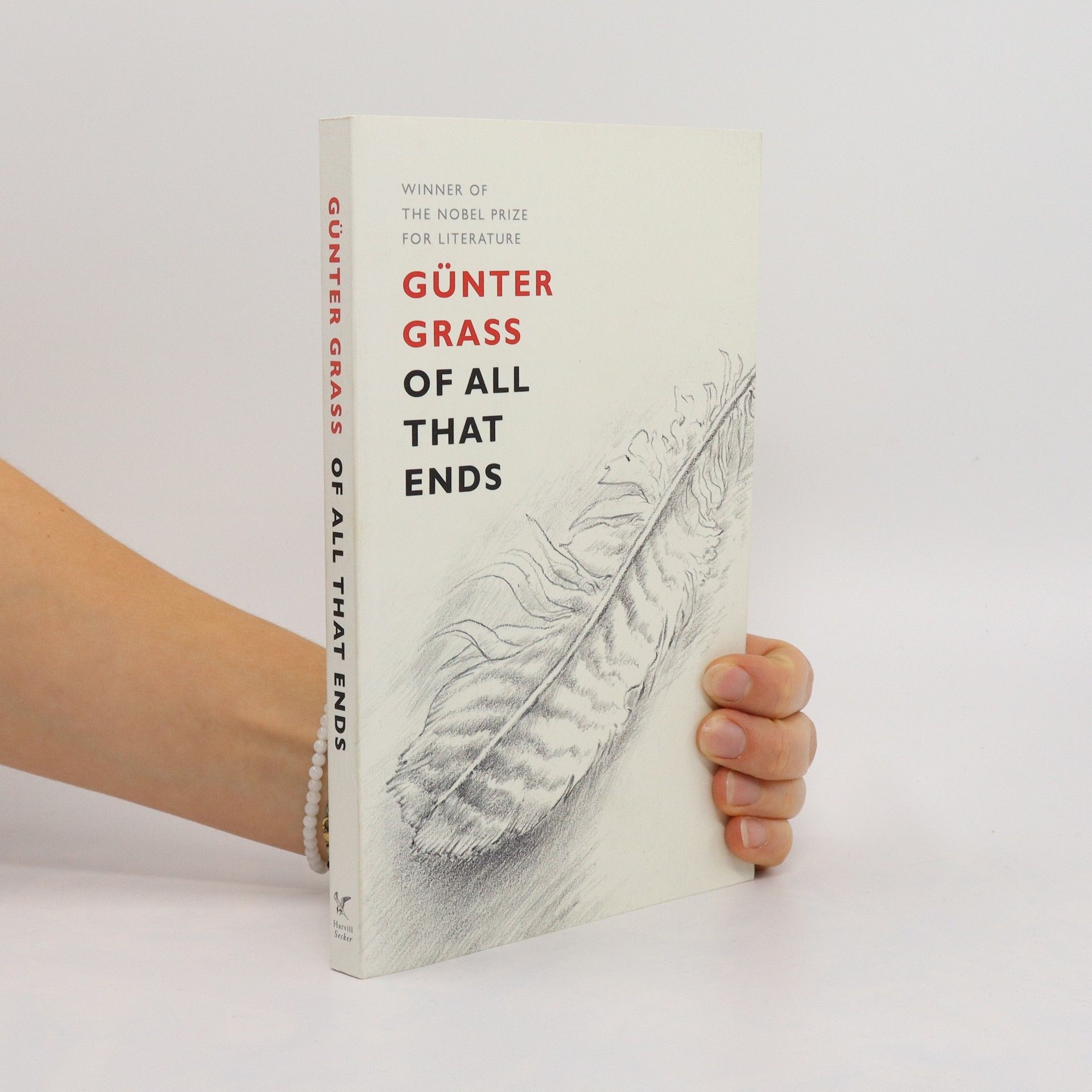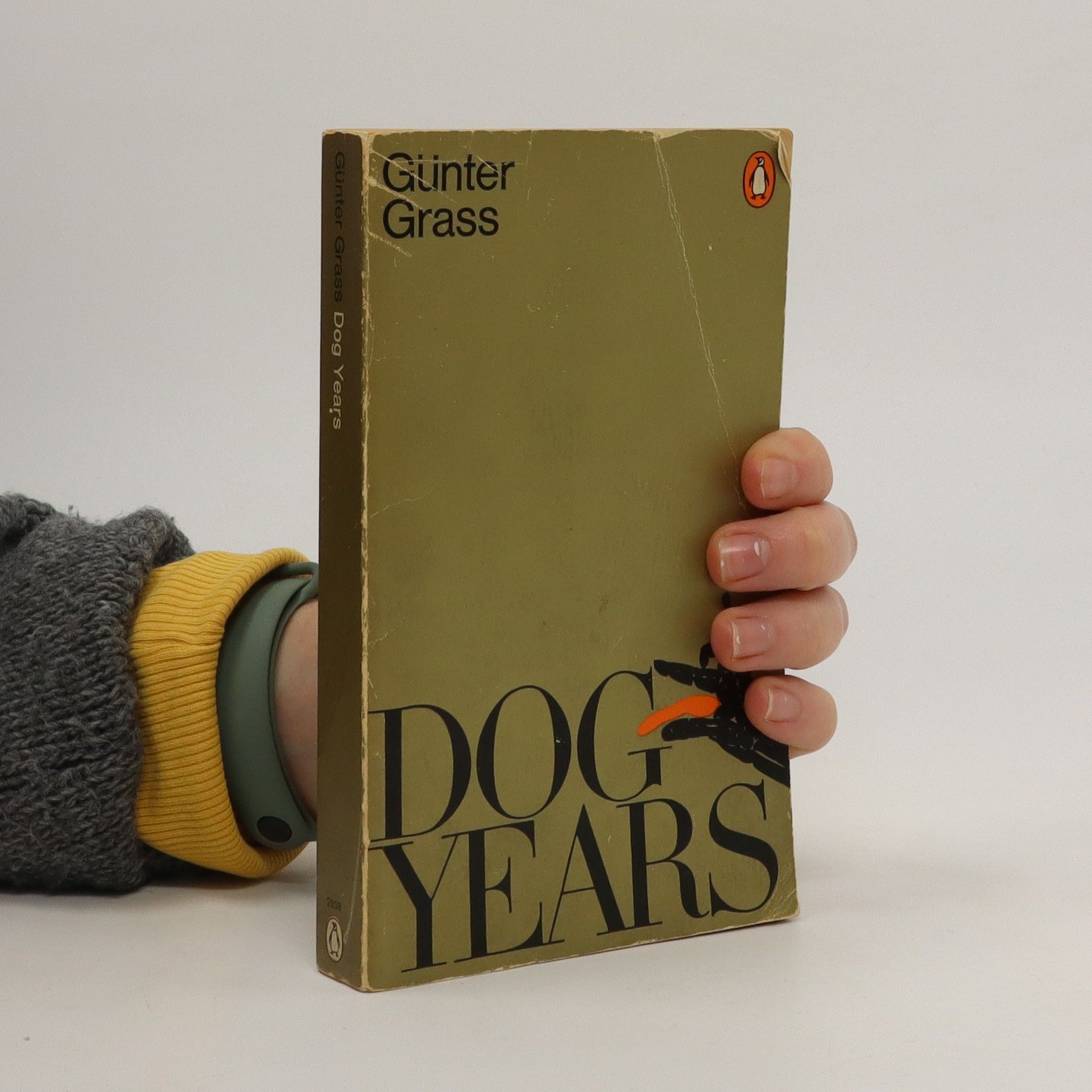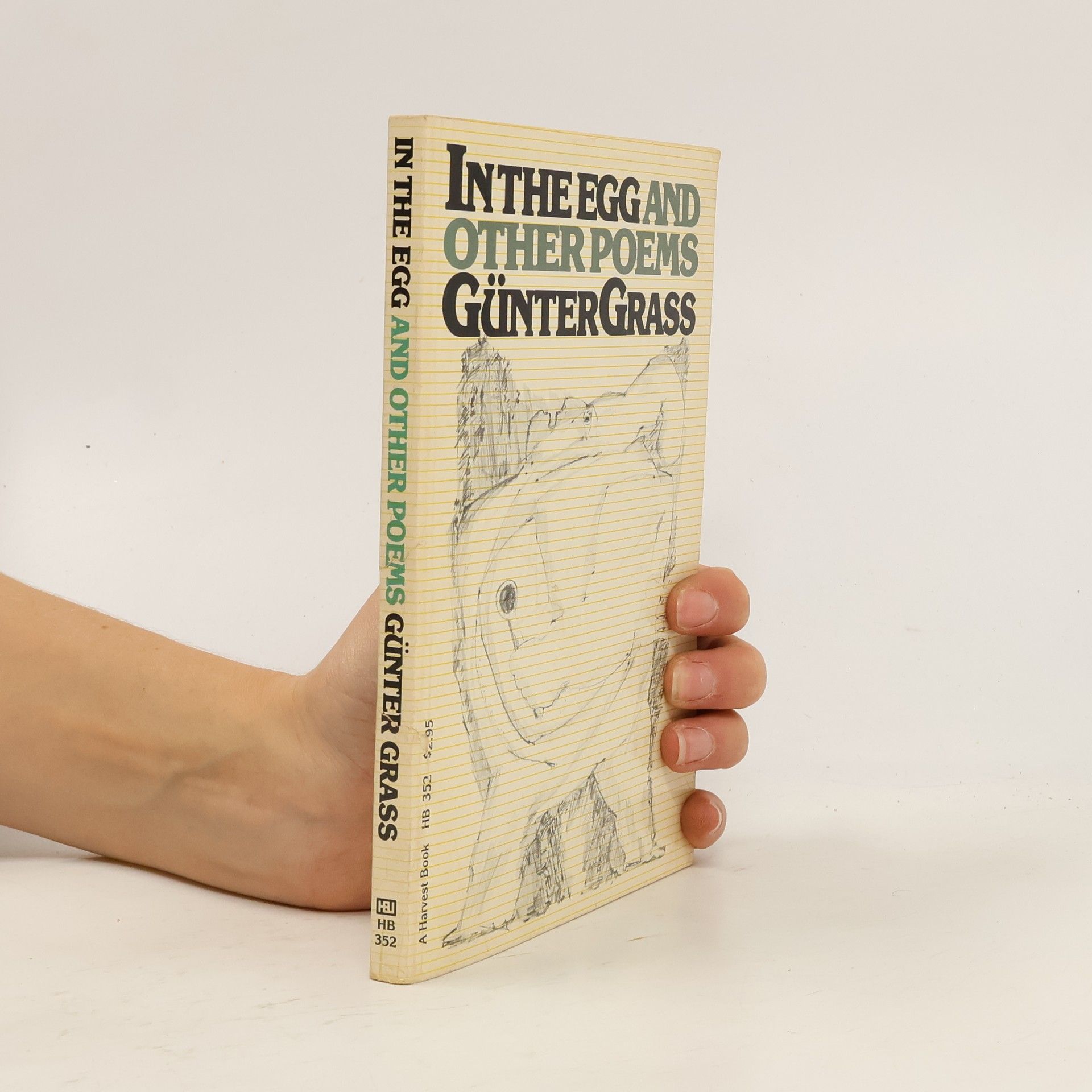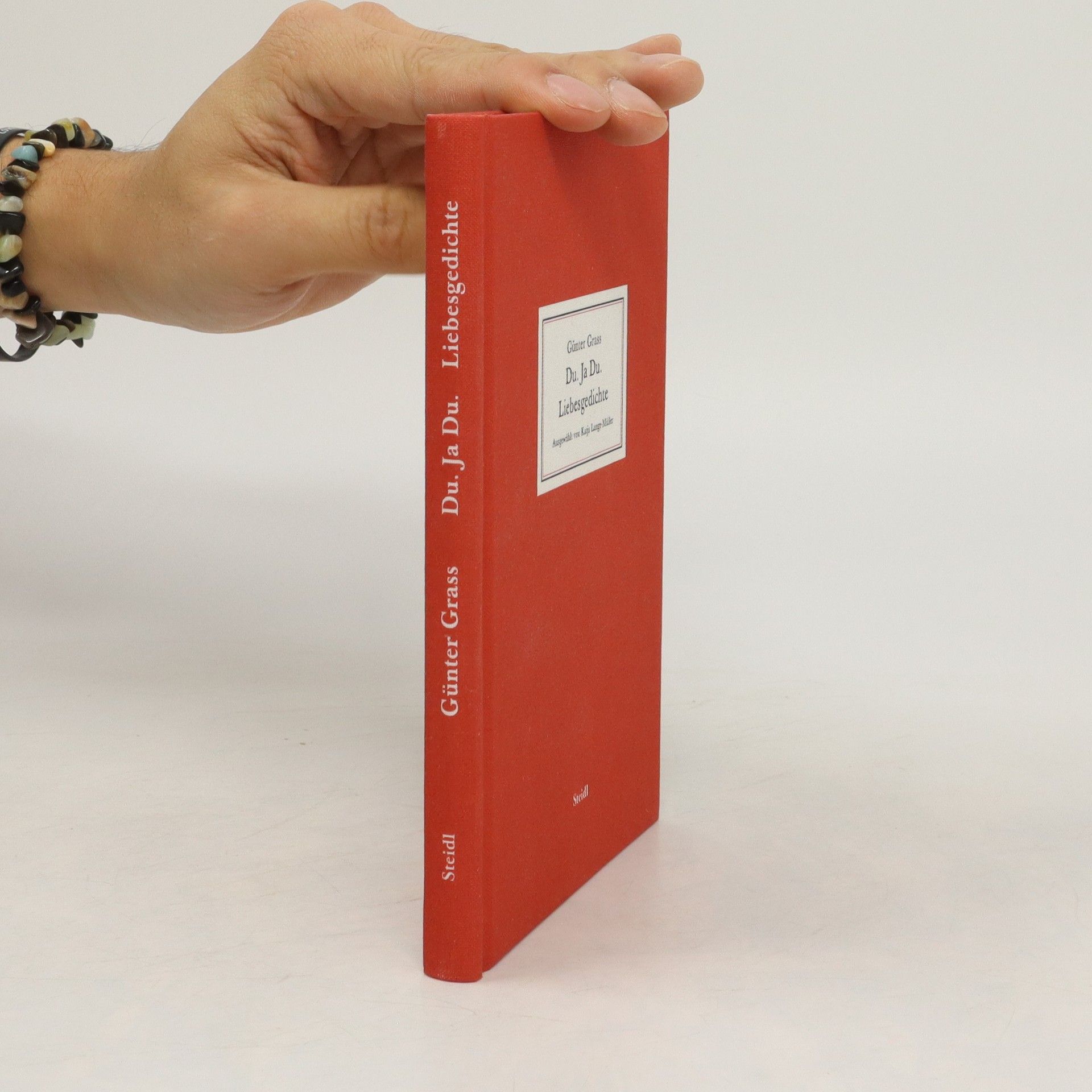Von poetologischen Texten bis zu seinen Wahlkampfreden spannt sich der Bogen dieser Essays und Reden. Damit zeichnet er zugleich die Entwicklung nach, die Günter Grass seit 1955 genommen hat: Begriff der Bildhauerschüler und Nachwuchsdramatiker Freiheit zunächst allein als eine der Kunst, wurde ihm mehr und mehr die Unmöglichkeit einer Existenz im Elfenbeinturm bewusst. Wachsendes gesellschaftliches Engagement führte ihn deshalb mitten hinein in das politische Alltagsgeschäft. Die Absage an jegliche Heilslehre, komme sie von rechts oder von links, ließ ihn jene Position zwischen allen Stühlen einnehmen, die ihm bis heute zu eigen ist.
Günter Grass Book order (chronological)
Günter Grass was a Nobel Prize-winning German novelist, poet, playwright, illustrator, graphic artist, and sculptor. His work frequently revisits his childhood city of Danzig, employing a style he termed "broadened reality," a form of European magic realism. Grass masterfully explored themes of guilt, memory, and identity in post-war Germany. His unique voice and profound engagement with history make him one of the most significant literary figures of the 20th century.







Von poetologischen Texten bis zu seinen Wahlkampfreden spannt sich der Bogen dieser Essays und Reden. Damit zeichnet er zugleich die Entwicklung nach, die Günter Grass seit 1955 genommen hat: Begriff der Bildhauerschüler und Nachwuchsdramatiker Freiheit zunächst allein als eine der Kunst, wurde ihm mehr und mehr die Unmöglichkeit einer Existenz im Elfenbeinturm bewusst. Wachsendes gesellschaftliches Engagement führte ihn deshalb mitten hinein in das politische Alltagsgeschäft. Die Absage an jegliche Heilslehre, komme sie von rechts oder von links, ließ ihn jene Position zwischen allen Stühlen einnehmen, die ihm bis heute zu eigen ist.
Von poetologischen Texten bis zu seinen Wahlkampfreden spannt sich der Bogen dieser Essays und Reden. Damit zeichnet er zugleich die Entwicklung nach, die Günter Grass seit 1955 genommen hat: Begriff der Bildhauerschüler und Nachwuchsdramatiker Freiheit zunächst allein als eine der Kunst, wurde ihm mehr und mehr die Unmöglichkeit einer Existenz im Elfenbeinturm bewusst. Wachsendes gesellschaftliches Engagement führte ihn deshalb mitten hinein in das politische Alltagsgeschäft. Die Absage an jegliche Heilslehre, komme sie von rechts oder von links, ließ ihn jene Position zwischen allen Stühlen einnehmen, die ihm bis heute zu eigen ist.
Six Decades
- 608 pages
- 22 hours of reading
Six Decades grants us a privileged look behind the normally closed door of Nobel Laureate Günter Grass’ studio. For well over half a century Grass worked unceasingly as a writer, sculptor and graphic artist. While capturing the pulse of each decade of his long life in his novels, Grass also produced theatre pieces, poems, short stories, essays, etchings, lithographs, drawings and sculptures. He was furthermore politically active in his native Germany, set up several foundations, and was passionately dedicated to issues he saw of artistic, social and humanitarian importance. Combining Grass’ writings with over 800 reproductions of his visual art, documents and photographs, Six Decades allows us to follow his working processes from book to book, from year to year. He shares with us moments of private happiness and crises through texts and images, many of which were not originally intended for publication, including preparatory sketches, draft manuscripts, book cover designs and work plans.
ŽIvé sochy
- 52 pages
- 2 hours of reading
Günter Grass (1927–2015), německý spisovatel, sochař a výtvarník, nositel Nobelovy ceny za literaturu (1999), napsal Živé sochy v srpnu 2003. V Grassově pozůstalosti fragment objevila jeho dlouholetá spolupracovnice Hilke Ohsoling a dosud neznámý text vyšel v nakladatelství Steidl v roce 2022, není tedy obsažen v souborném vydání celého Grassova díla Neue Göttinger Ausgabe z roku 2020. Východiskem příběhu je turistická prohlídka soch naumburského dómu, z nichž zejména legendární markraběnka Uta fascinuje vypravěče natolik, že si k ní začne domýšlet postavy a děje její doby, a nejen to, tato Uta se mu posléze prolíná i do současných zážitků. Když je svědkem moderní turistické atrakce, při níž mladí lidé převlečení za dějinné nebo biblické postavy stojí na veřejných místech nehybně jako sochy, začnou se mu do jedné „živé sochy“, převlečené právě za středověkou Utu, promítat – jako ve filmové dvojexpozici – rysy a osudy té „jeho“ Uty. S mladou ženou, jež představovala Utu, se později setká před frankfurtskou burzou a dozví se leccos o jejím reálném životě... Překlad této knihy podpořil Goethe-Institut.
Gedichte, Kurzprosa und Doppelstücke (1955-2015)»Meine grüne Wiese« bis »Vonne Endlichkait«Die Lyrik bildet in Günter Grass' Werk eine durchgehende Konstante. Sie ist nicht nur zusammen mit Zeichnung und Bildhauerei seine früheste künstlerische Ausdrucksform, Grass hat sie auch immer wieder aufs neue gepflegt, sei es in eigenständigen Gedichtsammlungen oder eingestreut in seine Prosaveröffentlichungen. Das Gedicht ist im doppelten Wortsinne die Keimzelle seines Werkes: "Alles, was ich bisher geschrieben habe, ist aus lyrischen Momenten entstanden, gelegentlich mit Ausweitungen bis zu 700 Seiten ... Das Gedicht erscheint mir immer noch als das genaueste Instrument, mich neu kennen zu lernen und neu zu vermessen."
Gedichtsammlungen (1956-2012)»Die Vorzüge der Windhühner« bis »Eintagsfliegen. Gelegentliche Gedichte«Die Lyrik bildet in Günter Grass' Werk eine durchgehende Konstante. Sie ist nicht nur zusammen mit Zeichnung und Bildhauerei seine früheste künstlerische Ausdrucksform, Grass hat sie auch immer wieder aufs neue gepflegt, sei es in eigenständigen Gedichtsammlungen oder eingestreut in seine Prosaveröffentlichungen. Das Gedicht ist im doppelten Wortsinne die Keimzelle seines Werkes: "Alles, was ich bisher geschrieben habe, ist aus lyrischen Momenten entstanden, gelegentlich mit Ausweitungen bis zu 700 Seiten ... Das Gedicht erscheint mir immer noch als das genaueste Instrument, mich neu kennen zu lernen und neu zu vermessen."
Abitur Deutsch Niedersachsen 2022 EA - Königs Erläuterungen-Paket
Ein Bundle mit allen Lektürehilfen zur Abiturprüfung: Unter der Drachenwand, Katz und Maus, Der goldne Topf
- 377 pages
- 14 hours of reading
Das Königs-Erläuterungen-Paket bietet umfassende Lektürehilfen für das Deutsch-Abitur EA 2022 in Niedersachsen. Es umfasst drei sorgfältig zusammengestellte Hilfen, die gezielt auf die Anforderungen des Abiturs eingehen und Schülern eine effektive Vorbereitung ermöglichen. Der Sparpreis macht dieses Paket besonders attraktiv für Abiturienten, die ihre Kenntnisse vertiefen und ihre Prüfungsfähigkeit steigern möchten.
Gespräche 1958-2015
- 895 pages
- 32 hours of reading
»Tanzen Sie noch? Leiden Sie unter dem Alter? Was war das größte Unglück in Ihrem Leben? Wären Sie lieber eine Frau?« – Es ist bemerkenswert, mit welcher Ausdauer Günter Grass über sechs Jahrzehnte auf die unterschiedlichsten Fragen seiner Gesprächspartner eingegangen ist, mal mit Humor, mal kompromisslos, stets auf hohem Sprach- und Reflexionsniveau. Ob als Schriftsteller, Bildhauer oder Grafiker, ob als gelernter Sozialdemokrat, Staatsbürger mit besonderer Reputation oder Literaturnobelpreisträger, immer wieder wurde er bis an sein Lebensende wie kaum ein Zweiter »ausgefragt«. Und stets nahm er in wechselnden Rollen Stellung zu ästhetischen, gesellschaftspolitischen und tagesaktuellen Problemen. Jederzeit auskunftsfreudig erläuterte der engagierte Zeitgenosse seine künstlerischen Ansätze und bewährte Arbeitsprozesse, äußerte sich zu Fragen der Poetik und zu Vorbildern seines Schaffens in Literatur und Politik, sprach offen über Frühprägungen, späte Einsichten und anhaltend belastende Traumata.
Möglicherweise hat der sinnenfrohe, auch auf kulinarischem Gebiet experimentierfreudige Günter Grass tatsächlich mal versucht, eine Süßholzwurzel zu raspeln, doch als Dichter ist dieser Wortbesessene niemals ein Süßholzraspler gewesen. Dennoch finden sich viele bewegende, lust- und humorvolle Liebeserklärungen in seinem umfangreichen poetischen Werk. Die Schriftstellerin Katja Lange-Müller hat ca. fünfzig Gedichte für diesen Band ausgewählt. Beeindruckende Hymnen auf deftige Speisen und Landschaften sind darunter, Lobgesänge auf die Sprache selbst, aber natürlich vor allem »astreine« Liebesgedichte von höchst disparatem Klang. Mal tönen sie scheu, dann forsch, mal zärtlich, dann pur erotisch, mal eher weh-, dann wieder übermütig.
